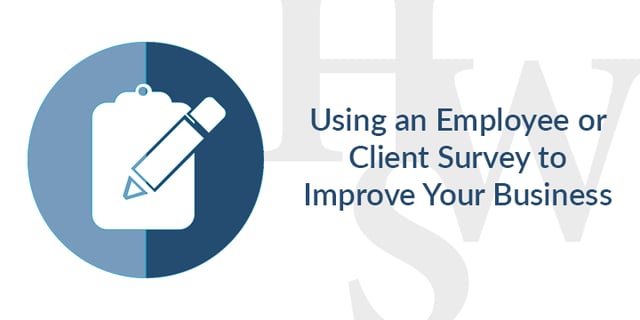
Many employers operate in the dark. They labor along with little to no idea what their employees are really thinking or feeling about a variety of critical employment issues. One way to flip the switch and bring some illumination to the situation is with an employee survey. Many clients aren’t shy about making their feelings known, but there can still be useful information gathered from surveying your clients.
Why they’re good
With an employee survey, you can gather open and honest input from those “in the know.” This input is the link between your employees and your company’s productivity, morale, and success. Employee surveys help you identify weaknesses, clarify concerns, and enhance communication and cooperation — all in a confidential, nonthreatening style. From a client perspective, they can yield insights into your services or potentially encourage adding new ones.
Employee surveys, when done properly, are both time- and cost-efficient because they gather vast amounts of data in a short period. Survey data can cover a wide variety of topics, from HR concerns and communication issues to quality control, customer interaction and employee involvement matters.
What can go wrong
Conducting a survey demonstrates your commitment to open communication and your respect for your employees’ opinions and well-being. The very act of conducting a survey can improve morale — as long as you subsequently take appropriate actions regarding the expressed concerns.
And therein lies the double-edged sword. If you conduct your survey incorrectly or halfheartedly, the results might not accurately reflect what your employees are thinking. For example, poorly worded questions or a low response rate could lead to misinformation and misconceptions about your workforce (or client base) and ineffective follow-up actions.
What’s more, even a thoroughly conducted survey can be harmful if you don’t appear willing to act on the information or you say nothing further about it after gathering the data. If you’re not willing to hear bad news or not seriously committed to putting employee input to use, don’t do a survey. A survey without follow-up communication and action will only increase employee cynicism or reinforce negative perceptions of management.
Reaping the benefits
As long as you’re prepared to put in the time and effort necessary to conduct a high-quality survey, open to hearing the bad as well as the good, and willing to take action to solve problem areas, your organization stands to reap great benefits from implementing an employee survey.
